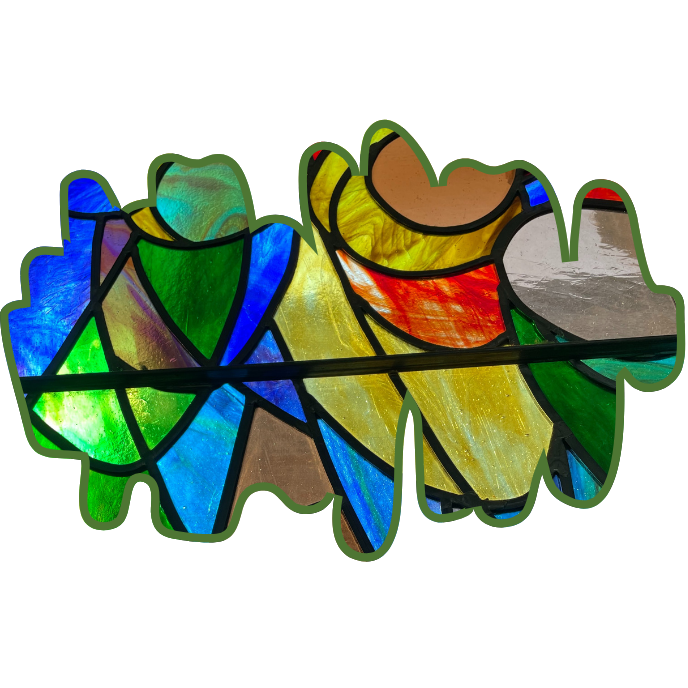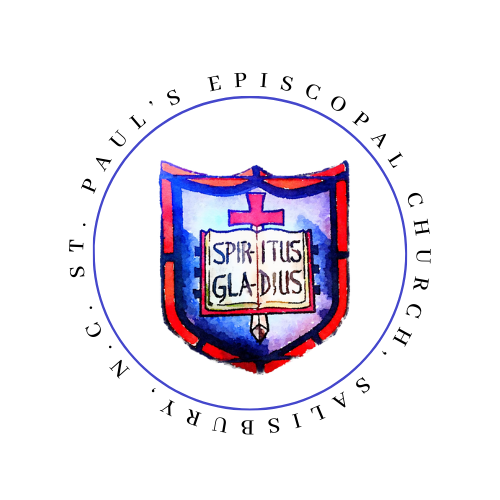A judgment of love
Church and politics
This is the post I’ve been most afraid to share, and also the one that keeps nudging me into writing it.
Because politics dismays me, and I try to stay as far away from it as I can.
Also, honestly, it’s personally painful.
So many people I love are in ministry - and also assume we share political views.
And while I’m probably pretty close to them on how I believe God calls us into loving our neighbors, I can’t let myself slide into the place where I judge my neighbors for having the opposite view.
Not because I’m sure I’m right - but because I know I’m wrong.
Lord Jesus, Son of God, have mercy on me, a sinner.
So my pain comes not from political divides, but theological ones.
How easy it is to decide that we know what God wants from us - how to behave, how to believe - and because of this, we confuse doing the ‘right’ thing with following Jesus.
Which is exactly what I think Jesus was trying to get the religious authorities of his own day to stop doing. Stop believing in their own righteousness.
The parable of the sheep and the goats isn’t a handbook for how to be a sheep. It’s a reminder that none of us is the King.
At least, that’s what I believe - politically and theologically.
_________________________________________________________________________
My dear friend was hurt and perplexed.
He had preached a sermon - a deeply felt, deeply faithful sermon on Matthew 25. Jesus’ parable on the sheep and the goats.
It could not be clearer to my friend that these are words we need to hear today, in our politically divided world.
To hear the words of Jesus, that we have an obligation to care for our neighbors, especially those in need. That caring for our neighbors in this way is loving God, as well as our brothers and sisters.
After my friend preached what he believed were words meant to heal, a member of the congregation accused him of being ‘woke’.
It stung. And it baffled him.
He will put the sheep at his right hand and the goats at the left.
Then the king will say to those at his right hand, “Come, you that are blessed by my Father, inherit the kingdom prepared for you from the foundation of the world; for I was hungry and you gave me food, I was thirsty and you gave me something to drink, I was a stranger and you welcomed me, I was naked and you gave me clothing, I was sick and you took care of me, I was in prison and you visited me.”
Then the righteous will answer him, “Lord, when was it that we saw you hungry and gave you food, or thirsty and gave you something to drink? And when was it that we saw you a stranger and welcomed you, or naked and gave you clothing? And when was it that we saw you sick or in prison and visited you?”
And the king will answer them, “Truly I tell you, just as you did it to one of the least of these who are members of my family, you did it to me.”
Then he will say to those at his left hand, “You that are accursed, depart from me into the eternal fire prepared for the devil and his angels; for I was hungry and you gave me no food, I was thirsty and you gave me nothing to drink, I was a stranger and you did not welcome me, naked and you did not give me clothing, sick and in prison and you did not visit me.”
Then they also will answer, “Lord, when was it that we saw you hungry or thirsty or a stranger or naked or sick or in prison, and did not take care of you?”
Then he will answer them, “Truly I tell you, just as you did not do it to one of the least of these, you did not do it to me.” And these will go away into eternal punishment, but the righteous into eternal life.’
(Matthew 25: 33-46)
This is where I see us struggling as the church - especially the mainline church.
We’re trying to do good.
And by doing so, it becomes oh-so-tempting to believe that in our current political times, we know exactly which side of our divides is ‘good’. And which people, therefore, are doing good.
And which side God is on.
Which of course puts others - our brothers and sisters - on the side of not doing God’s will.
And suddenly we become the ones lining up the sheep and goats, and judging their actions.
It’s so hard to remember that we’re always the ones surprised to find out that there was a line to begin with, much less which side we’re on.
This, to me, is about right relationship with God. It’s about theology, not politics.
____________________________________________
________________________
The future of church is theological, not political
Isn’t it true that the church has the obligation to call out injustice? To stand against oppression?
YES.
Just this week, the teenaged daughter of an Episcopal priest was arrested by ICE and detained in jail, and I have no doubt she would not have been released so promptly if it were not for the intervention of the Episcopal Diocese of New York, and their bishop.
We should indeed stand for God’s truth, justice, and mercy where ever and whenever we can.
AND…
I think there is a difference between loving our neighbor as clearly and loudly as we can, and judging our neighbor whom we see as guilty of sin.
Politics, after all, is how we divide ourselves: you belong to them, you belong to us.
Theology is how we know there is only us - and God.
In today’s world, we don’t need to be in the pulpit talking about how the other side is wrong, and our side is right. That kind of news is everywhere - we can hardly get away from it.
Even more important - church is the only place people will hear Good News: that love is the strongest force in the universe. That the world is in the midst of being redeemed. That this is God’s story, and we can’t ever really see our part in it.
Here’s what I see: Jesus’ most political act is the most theological act.
Jesus stands before Pontius Pilate, who condemns him to death.
Jesus could have told him how wrong he was. He could have summoned his followers to protest, even to resort to violence.
He could have corrected them or taught them a lesson.
Instead he went to his death. Instead, he forgave his executioners.
Instead, he rose again - for us all.
In Jesus’ most political moment - Barabbas, a political prisoner, is released instead of him - his actions are not about taking sides, they are about rising above.
About showing us that no matter what we do, we are redeemed by Jesus’ saving act.
I’ll tell you a secret:
Deep down, I believe we’re all sheep. As theologian Alan Jones once said,
I’m required by Christian theology to believe in hell.
I’m not required to believe there’s anyone in there.
This is how I think about Matthew 25.
If we are, indeed, all lined up someday - a day of complete surprise, a moment we’re unprepared for.
And God really does say, ‘anyone who has ever cared for - loved - even the least of my children’ is going to heaven…
Well, I don’t believe there is a person who has ever lived that hasn’t ever - not once - fed or clothed or visited or generally taken care of someone.
I don’t believe that a judgment of love - which is the only judgment Jesus ever speaks of - will find anyone lacking.
And even if it does… the very next chapter - Matthew 26 - is when Jesus speaks to his disciples about his coming crucifixion.
Even if we are loveless - Jesus dies to redeem us.
To show us that nothing will ever keep us from the love of God - not even death.
To my friend - who I know believes all of this - and to the person who was somehow offended by a sermon about love: I’m glad you’re in line with me.
I’m glad we believe in a God whose judgment of love includes us all.
At Free Range Priest, we’re reimagining ministry in the digital age.
Subscribe to any (or all!) of these publications to be part of innovative ministry for the future of church.







Practicing non-duality is difficult. We are so tempted to see things as “us and them, black and white, right and wrong, good and bad” rather than accepting everything as just what IS. We are playing God when we judge.
I have been meditating in this quote from Walter Brueggemann’s The Prophetic Imagination:
Hope, on one hand, is an absurdity too embarrassing to speak about, for it flies in the face of all those claims we have been told are facts. Hope is the refusal to accept the reading of reality which is the majority opinion; and one does that only at great political and existential risk. On the other hand, hope is subversive, for it limits the grandiose pretension of the present, daring to announce that the present to which we have all made commitments is now called into question.